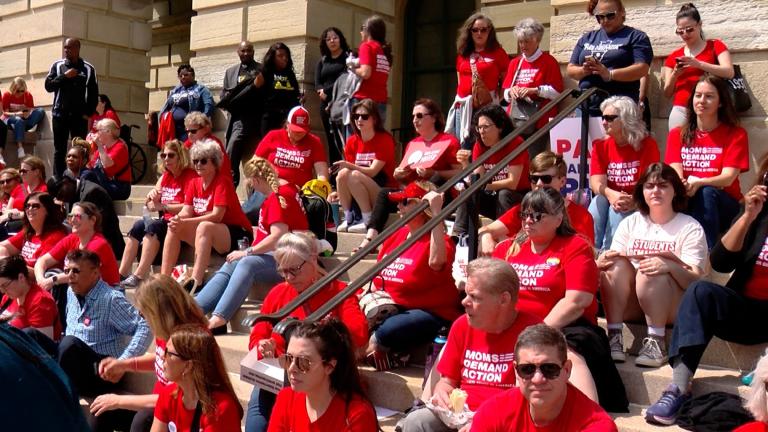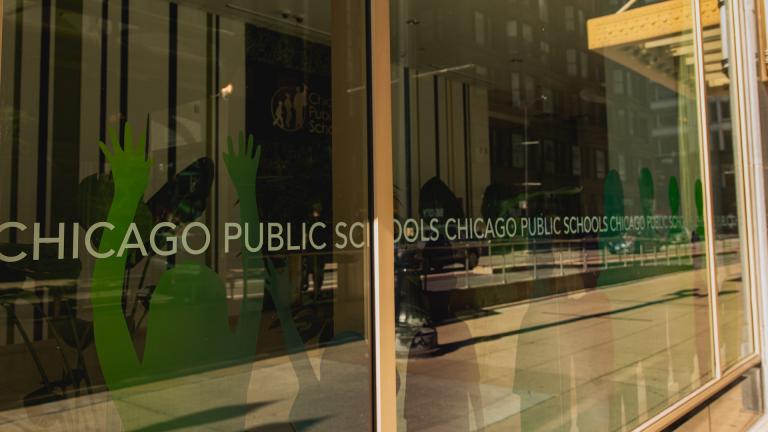Chicago has been vying for a casino for years, which is why it was peculiar last spring when the city came out in opposition to the latest gambling package that appeared to have a chance in Springfield.
State lawmakers on Wednesday got their first public insight into what’s behind that change of heart, at an hourslong hearing held in the city.
In short: The city says the landscape has changed since lawmakers last got serious about a gambling expansion. Since that time, Illinois has seen an explosion in video gaming at bars, VFW halls and at strip mall joints with names like Lucy’s and Dottie’s; by some estimates, those video gaming terminals are the equivalent of 24 or 25 casinos.
The measure in question (House Amendment 3 to Senate Bill 7) would not only give Chicago a city-owned casino. It also allows slot machines at O’Hare and Midway airports. Horse race tracks like Arlington Park and Hawthorne Racecourse would, for the first time, be permitted to have gaming. Illinois would also add five other casinos, in Lake County, the south suburbs, Rockford, Danville in eastern Illinois and Williamson County in deep southern Illinois as part of the Walker’s Bluff development.
Given those conditions “it may not be financially feasible” for Chicago, or a casino operator hired by the city, to pay an up-front cost of roughly $120 million (a $30,000 fee for each of the city’s allotted 4,000 gaming positions), city lobbyist Victoria Watkins told lawmakers. Plus, there’s the cost of land acquisition, potential environmental and transportation costs and state taxes.
“This would be the highest gaming establishment cost in the country,” Watkins testified.
Unlike every other privately owned casino, in which a developer pockets the proceeds, Chicago’s would be city-owned, leaving the city to question why it should it pay the same taxes as wealthy casino owners, when that money could go to city needs.
Tom Swoik, who represents owners of Illinois’ existing 10 casinos via the Illinois Casino Gambling Association, sees it differently.
“The concept of a municipally owned casino … is a new concept. There are none. This would be a new precedent,” Swoik said. “This is a way for the city to gain more of the benefit of the casino than the state.”
Swoik does agree that with video gaming, the gambling market is maxed out (his members don’t want more competition) given that most casinos are already seeing business lag.
“The studies that have been done do not show that a casino will necessarily bring in more conventions,” he said. “So we’re opposed just because of what it would do to existing casinos.”
There’s no chance that a gambling package could pass without Chicago’s backing – there are simply too many legislators from the city.
State Rep. Bob Rita, a Democrat from Blue Island who is trying to negotiate it all, says it makes sense for Chicago to have a casino.
“If you look at Chicago and the density and where people here – the conventions, the tourism – it’s an economic engine for the state, Chicago itself. And having a casino would just be the improvement on that,” Rita said.
But lawmakers from the rest of the state will need to buy in to the idea, too, in order to build the necessary support for a measure to pass.
There are a lot of cards on the table. And the stakes, for each of the communities and industries involved, are high.
Rockford’s trying to get a casino before one goes up across the border, in Beloit, Wisconsin; Danville’s eying Indiana. Horse race tracks say they need to offer slots and table games, or they’ll go under – as Maywood and Balmoral already have.
Another hearing will be held in Springfield in October, given that lawmakers also have to consider sports betting, fantasy sports and internet gambling, either before or in conjunction with casino and racino expansion.
Follow Amanda Vinicky on Twitter: @AmandaVinicky
Related stories:
Chicago Casino’s Bad Odds: Lawmakers Reject Gambling Bill
Illinois Eyes Sports Betting Revenue as Supreme Court Lifts Ban
Supreme Court Case a Potential Game-Changer for Sports Betting








